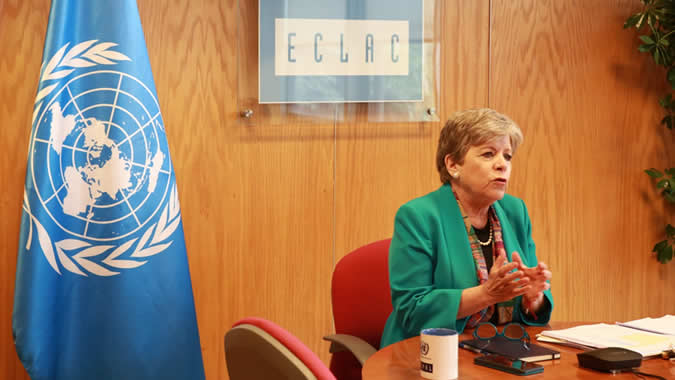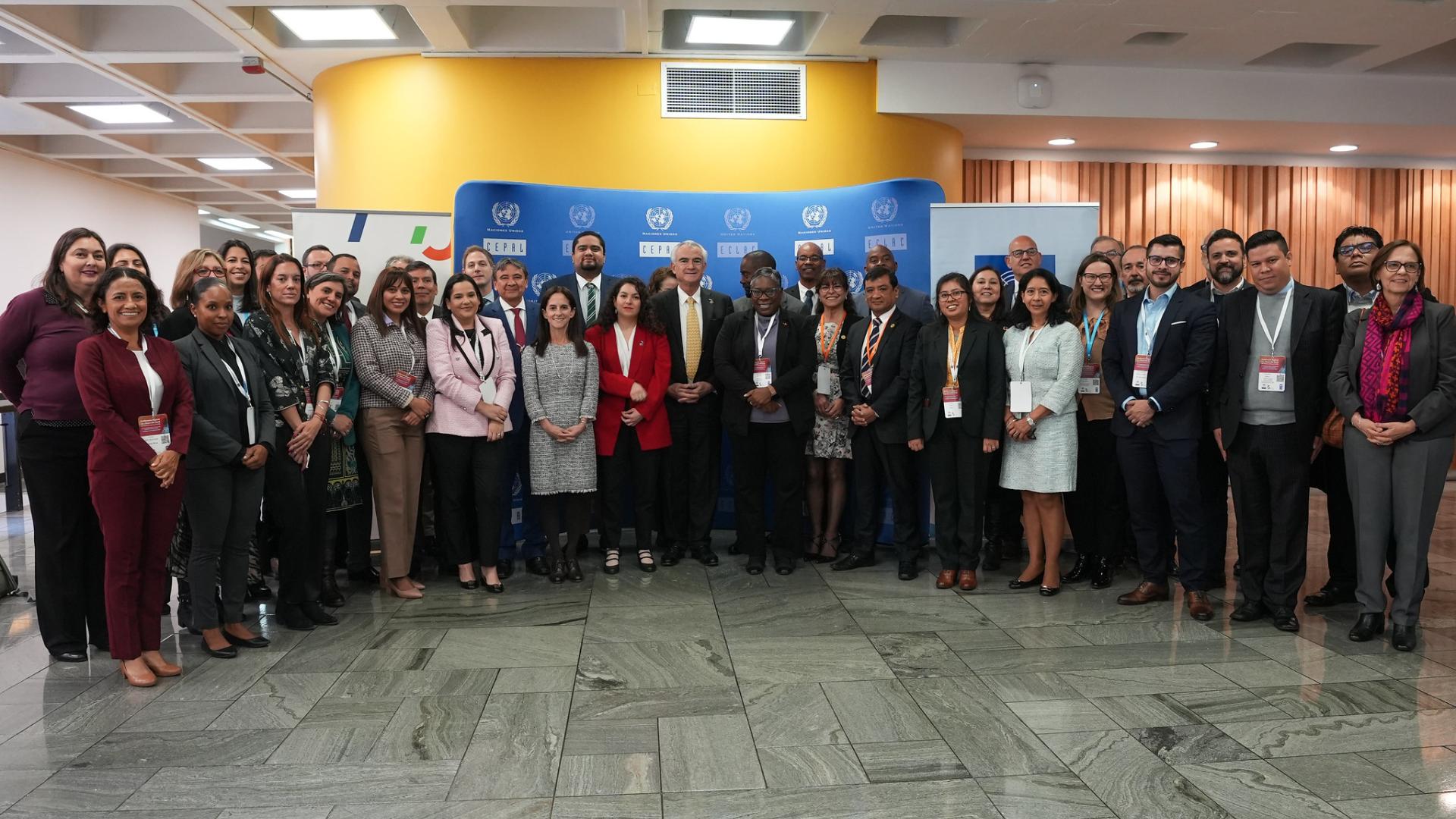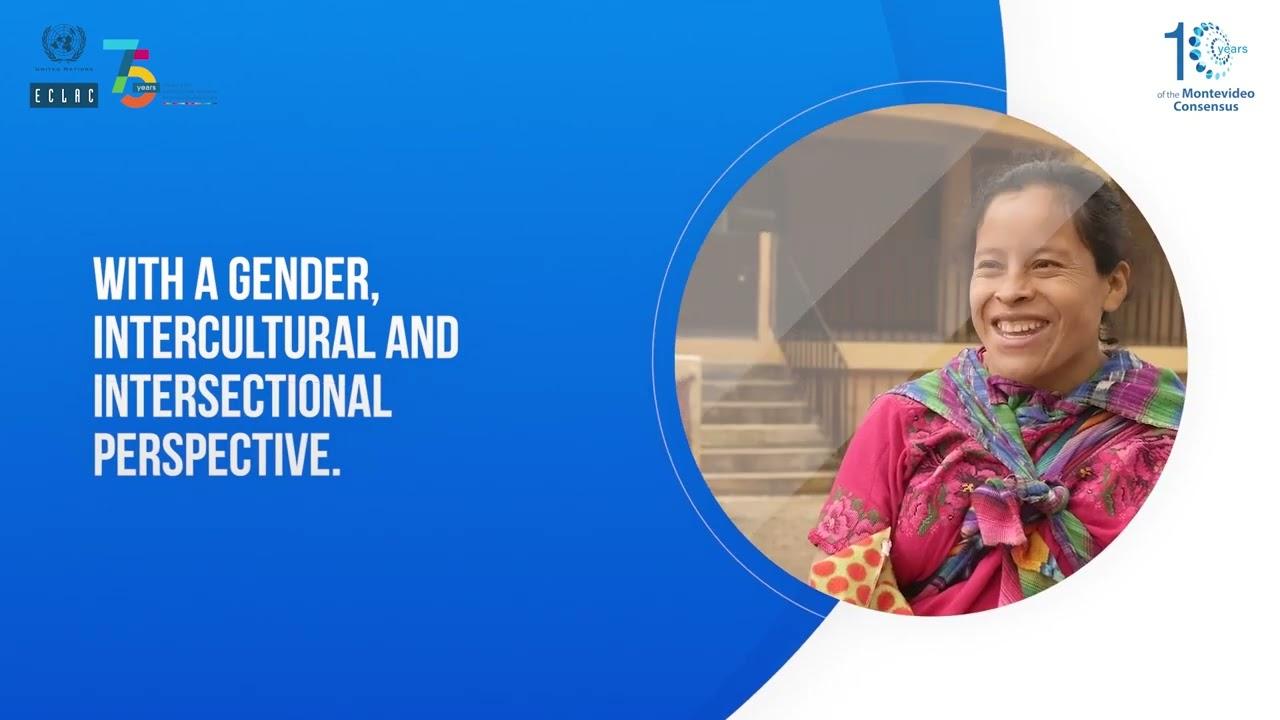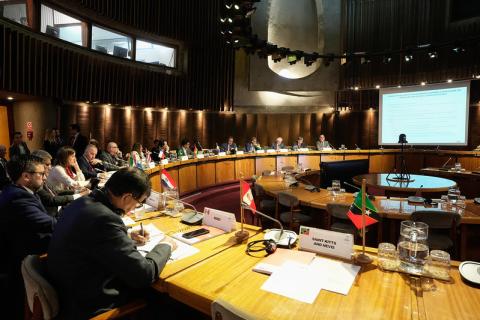Briefing note
The Executive Secretary of the Economic Commission for Latin America and the Caribbean (ECLAC), Alicia Bárcena, held on Friday a virtual extraordinary meeting with ambassadors and representatives from the permanent missions of 31 countries in the region to the United Nations, to inform them about the actions and proposals the organization has made recently in response to the crisis unleashed by COVID-19. On this occasion, the senior official presented the Gateway for Follow-up on the Sustainable Development Goals (https://agenda2030lac.org/en), which is the result of a joint effort by the United Nations System in the region, along with the COVID-19 Observatory in Latin America and the Caribbean and the three special reports produced by ECLAC on the pandemic’s socioeconomic impact in the region.
The meeting, carried out in preparation for the operational activities of the development segment of the UN Economic and Social Council (ECOSOC), was presided over by Ana Silvia Rodríguez, the Permanent Representative of Cuba to the United Nations, in that country’s capacity as president pro tempore of ECLAC and of the Forum of the Countries of Latin America and the Caribbean on Sustainable Development.
Other participants included Ambassador Juan Sandoval Mendiolea, Deputy Permanent Representative of Mexico and Vice President of ECOSOC, who is leading the Operational Activities for Development Segment, as well as preparations for the next High-Level Political Forum (HLPF); Rodrigo A. Carazo, the Permanent Representative of Costa Rica, the country that will take over ECLAC’s presidency next; and Janine Felson, Belize’s Alternate Permanent Representative to the UN.
“As the United Nations Secretary-General (António Guterres) has underscored many times, this is a global crisis that requires global and regional solutions. Improved multilateralism and greater regional cooperation are key to being able to overcome the enormous social and economic impact that the pandemic is having in all countries,” Alicia Bárcena told the diplomatic officials.
In her remarks, ECLAC’s highest authority stressed that the multilateral system must remain strong to focus on a better reconstruction, with the aim of attaining the main objective, which is to achieve more egalitarian, inclusive and sustainable societies and economies, with greater resilience to face the emergence of biological risks, climate change, and many other global challenges that will stay with us in the near future.
“We are highly convinced that today, regional cooperation and integration is more important than ever, and that it is vital that ECLAC’s subsidiary bodies continue working actively to support the efforts of its countries to cope with the varied and complex challenges that you are facing today and in the future,” Bárcena stated.
At the meeting, ECLAC’s Executive Secretary presented the SDG Gateway, a platform for follow-up of the 2030 Agenda, which was developed jointly by the entire UN Development System in the region and is aligned with the UN Secretary-General’s recommendations.
In addition, she recounted the initiatives that the Commission has developed to take prompt action regarding COVID-19’s socioeconomic impact in Latin America and the Caribbean, in response to a request by the Community of Latin American and Caribbean States (CELAC), which has included analysis, data production, the monitoring of national responses and policy recommendations to more effectively cope with the consequences of the pandemic, using a cross-sector and multidisciplinary approach.
One of these actions was the establishment of the COVID-19 Observatory in Latin America and the Caribbean, a platform that gathers all the information and extraordinary measures that countries have been taking, in terms of public policy, in the face of the pandemic.
“ECLAC has made full use of its intergovernmental architecture and has convened efforts to organize multiple dialogues on ministerial policies to address the effects and responses related to COVID-19, facilitating the exchange of regional practices, identifying priorities for regional and multilateral coordination, and highlighting key areas for requesting support,” Alicia Bárcena indicated.
“We want to assure you that ECLAC, as a platform for multilateral dialogue, and through its subsidiary bodies and the Forum on Sustainable Development, will be ready to serve you and prepared to help you with your efforts. We are at your disposal,” the United Nations senior official stated.



